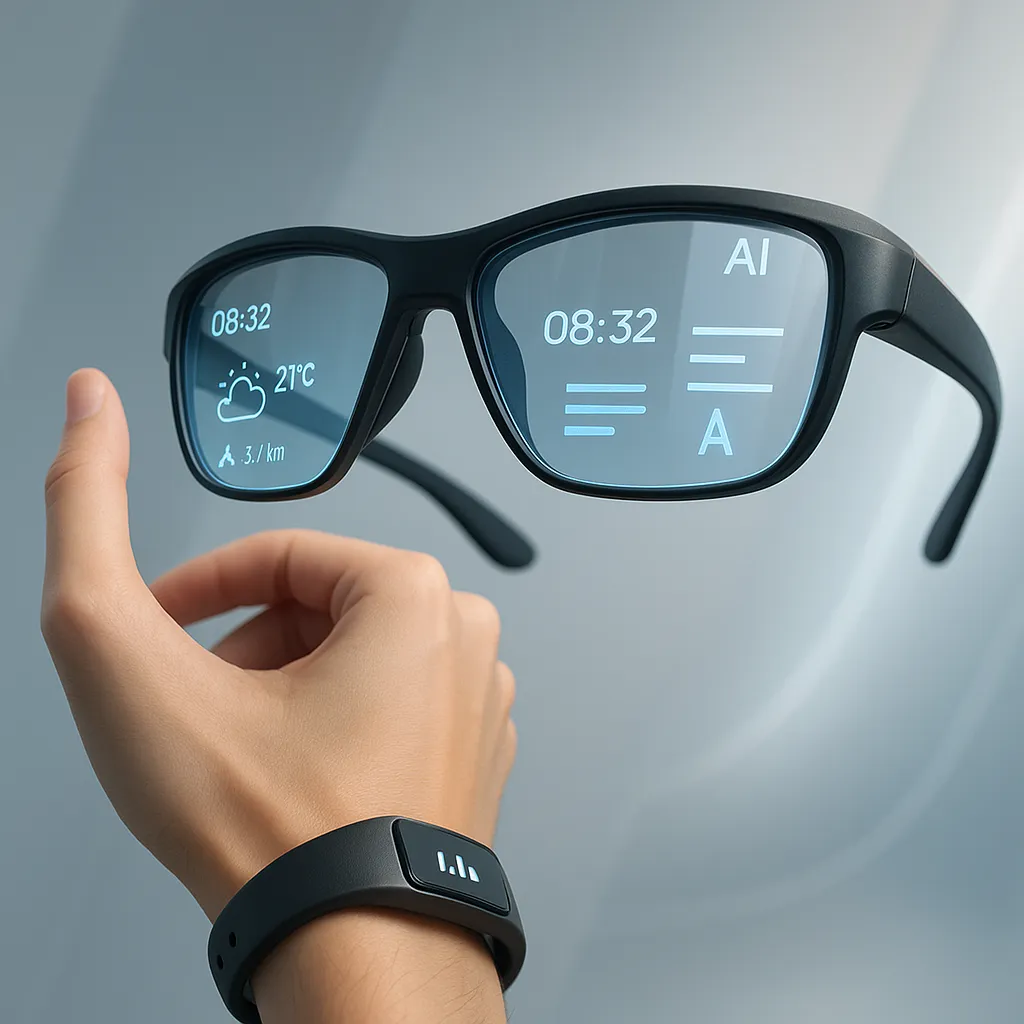Meta Unveils Next-Gen AI Smart Glasses at Connect 2025

Menlo Park, Sept. 17- Meta today debuted its long-awaited Hypernova “Celeste” AI smart glasses and companion gesture-sensing wristband at its annual Meta Connect developer conference in Menlo Park, unveiling the company’s renewed push into wearable computing and artificial intelligence.
Meta’s flagship event showcased its pivot from VR headsets to AI-powered wearables, highlighting hardware and software innovations poised to reshape augmented reality experiences.
Key Announcements
- Hypernova “Celeste” smart glasses launched featuring a monocular heads-up display, integrated cameras, microphones and an onboard AI assistant to overlay information directly in the user’s field of view.
- Electromyography (sEMG) wristband introduced to detect subtle hand gestures for hands-free control of the glasses’ interface.
- Oakley Meta Sphaera performance frame revealed, designed for athletes with a wraparound lens and centered camera module.
- Meta Superintelligence Labs (MSL) update, with CEO Mark Zuckerberg sharing early progress on large-scale AI research and multimodal models developed under former Scale AI leader Alexandr Wang.
- Developer SDK previewed for building native apps and AI “skills” on smart glasses, with full toolkit to be released on Sept. 18.
Devices First, Metaverse Later
Meta’s keynote, delivered by Zuckerberg at 5 p.m. PT, focused squarely on hardware. After two years emphasizing virtual reality headsets, this year’s Connect placed AI smart glasses at center stage, signaling a strategic shift toward ambient computing. No new Quest headset was announced, though Meta reaffirmed its commitment to VR and Horizon Worlds in future updates.
Hypernova Hardware Details
Designed in collaboration with EssilorLuxottica, the Celeste glasses use waveguide displays to project turn-by-turn navigation, live translations and contextual information into users’ line of sight. The sEMG wristband interprets micro-movements-pinches and swipes-enabling discreet UI navigation without voice commands or hand controllers. Pricing was announced at $799 with preorders opening next month.
Developer Ecosystem and AI Integration
To accelerate adoption, Meta previewed a smart glasses SDK that will offer APIs for eye-tracking, spatial anchors and on-device AI inference. Sessions slated for Thursday include deep dives on multimodal generative AI, spatial computing frameworks and standards for ethical data use. Zuckerberg emphasized that Meta aims to empower developers to build immersive, context-aware applications beyond social media.
The Road Ahead
Meta Connect 2025 marks the company’s boldest wearable bet yet, as it races Apple’s Vision Pro and emerging AR competitors. By marrying advanced AI with lightweight hardware, Meta seeks to make glasses the next mainstream computing platform. Industry analysts will be watching consumer response closely to gauge whether this generation of smart glasses can transcend novelty and achieve mass adoption.
Categories
Autos and vehicles Beauty and fashion Business and finance Climate Entertainment Food and drink Games Health Hobbies and leisure Jobs and education Law and government Other Politics Science Shopping Sports Technology Travel and transportationRecent Posts
Tags
Archives
08/19/2025 (3) 08/20/2025 (40) 08/21/2025 (27) 08/22/2025 (22) 08/23/2025 (4) 08/24/2025 (21) 08/25/2025 (30) 08/26/2025 (24) 08/27/2025 (29) 08/28/2025 (16) 08/29/2025 (9) 08/30/2025 (13) 08/31/2025 (17) 09/01/2025 (167) 09/02/2025 (124) 09/03/2025 (149) 09/04/2025 (112) 09/05/2025 (72) 09/06/2025 (169) 09/07/2025 (162) 09/08/2025 (150) 09/09/2025 (176) 09/10/2025 (194) 09/11/2025 (194) 09/12/2025 (186) 09/13/2025 (207) 09/14/2025 (159) 09/15/2025 (175) 09/16/2025 (198) 09/17/2025 (196) 09/18/2025 (196) 09/19/2025 (207) 09/20/2025 (129) 09/21/2025 (4)